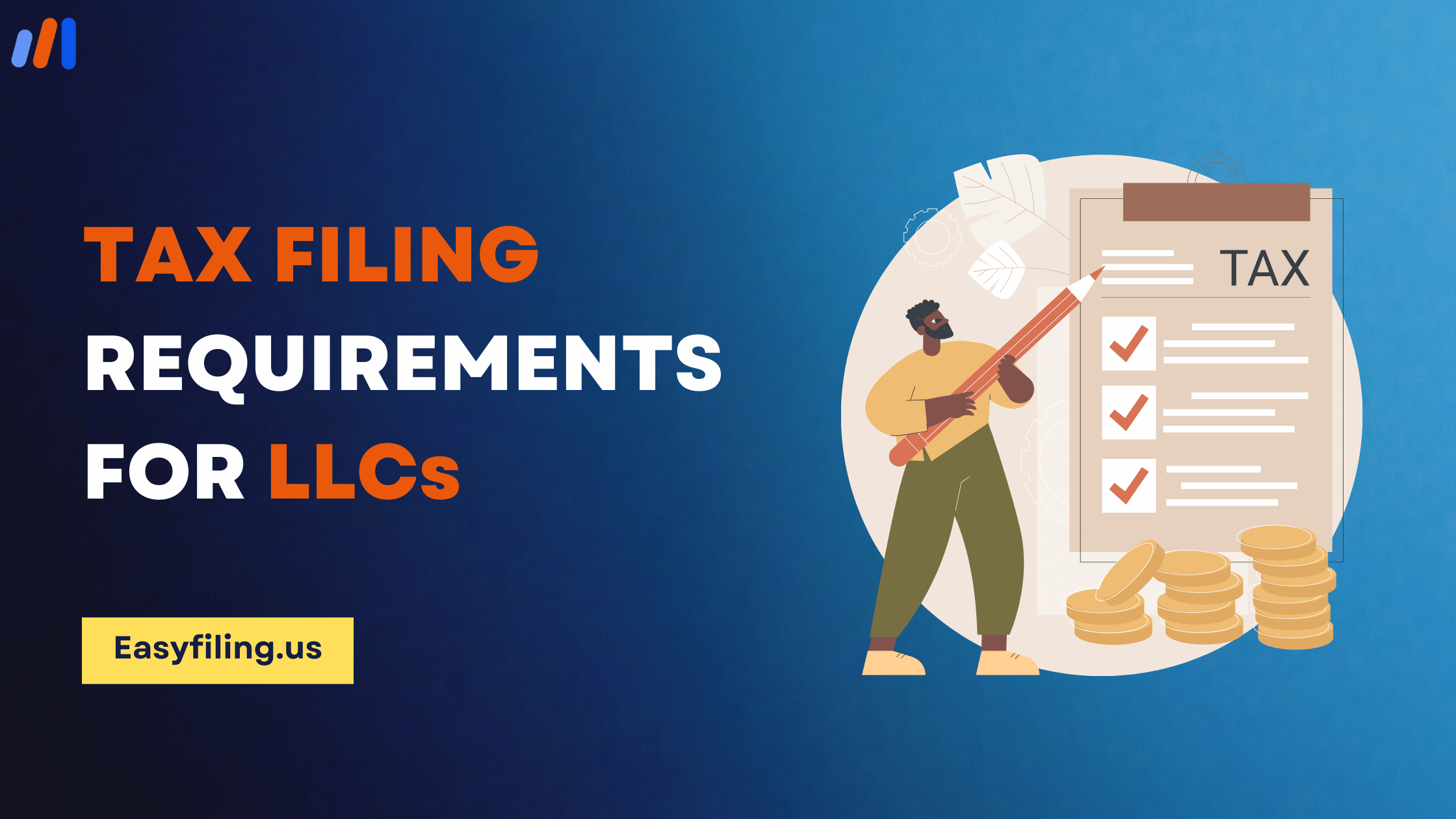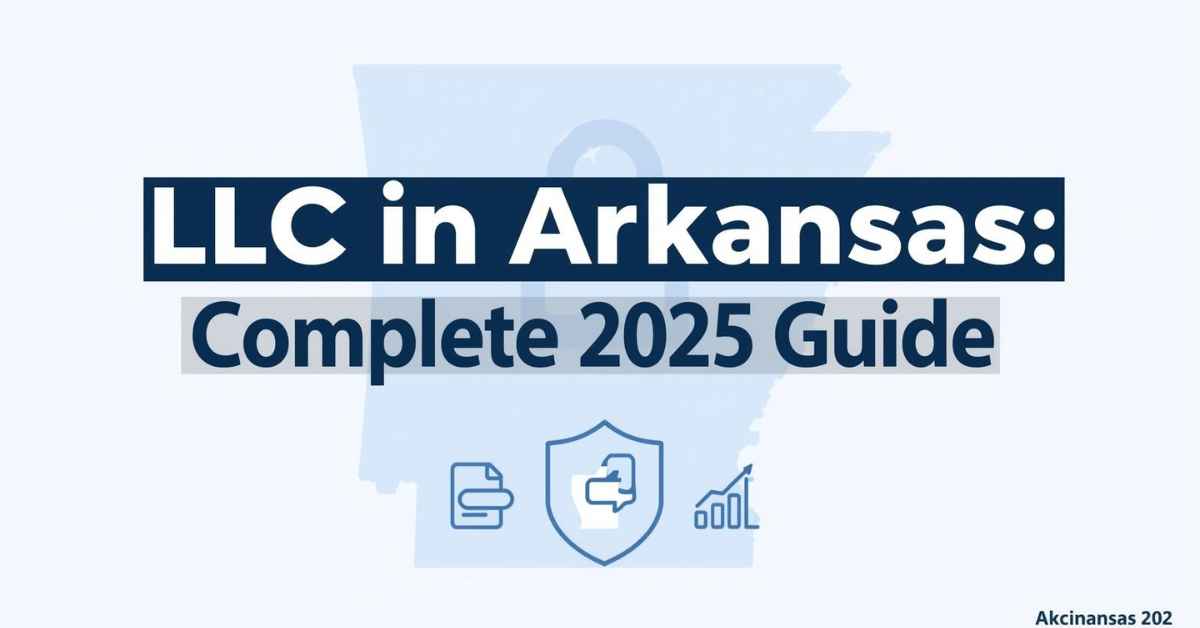Are you an LLC owner concerned about tax issues? The taxation of LLC may seem hard, but each person needs to have an understanding of the core principles to meet legal requirements and reduce the amount of taxes owed.
This paper seeks to deepen your understanding of the LLC tax filing process by highlighting the tax management options, deadlines for tax submissions, and other important factors.
What is a Limited Liability Company (LLC)?
A Limited Liability Company (LLC) is a special form of business enterprise that combines the legal protection of company assets from personal claims of creditors with the low tax and management structure of partnerships.
Such hybrid structures are mostly preferred by small businesses and especially by entrepreneurs as they offer protection to the owners from the business debts and liabilities and at the same time facilitate the pass-through of taxation in which the profits and the losses of the business are taxed to the owners rather than the corporation which seeks to avoid double taxation.
Federal Tax Filing Requirements for LLCs
Single-Member LLCs
If an LLC has only one owner i.e. a single-member LLC, it is considered a “disregarded entity” for federal tax reasons unless that LLC elects a corporation status. This designation implies that the income and expenses of the LLC are included with the owner’s individual income tax return with only Schedule C (form 1040) prepared within the IRS forms.
The limitation of the business in such instances is that the undertakings do not derive separate federal tax filings, which cuts down costs for a sole proprietor. That being the case, as a single-member LLC good records in respect of business-related costs have to be kept in a bid to lessen the burden of taxation as a lot of deductions are applicable.
Multi-Member LLCs
If there are more owners to the LLC a multi-member LLC, it is considered as a further form of taxation as a partnership firm for federal tax purposes unless that LLC opts to be taxed as a corporation. In this situation, the limited liability company submits Form 1065 U. S. Return of Partnership Income.
Each member will be provided with a Schedule K-1 form which outlines the portion of the income, deductions, and credits from the LLC that its members will have to include in their tax returns. In this structure, the members will not have to worry about the double taxation that is often experienced by corporations, but it would also call for more record-keeping to report accurately.
Electing Corporate Status
LLCs have the option of electing to be taxed as a corporation, hence, if this option is selected then it would be necessary to fill out Form 8832, Entity Classification Election. The form also states that the company will choose to be taxed as an S Corporation, a commonly chosen option by many LLCs to decrease self-employment taxes further Form 2553, Election by Small Business Corporation has to be filed to this effect.
After making the election, the tax position of the LLC is such that it is regarded for tax purposes as an S or C Corporation and it thereafter taxes its income by completing either of the forms Form 1120 or Form 1120S. This decision should be made in consultation with a tax expert because it has far-reaching effects on taxation and compliance.
Filing Requirements On State Taxes
Different states have different requirements for LLCs regarding taxation. Most states are favorable to LLCs as it is normal for them to request their members to file an annual report or statement as well pay an annual fee which in most cases ranges between a dollar and a few hundred dollars depending on the case.
Some states may further impose local taxes such as the franchise tax or the gross receipts tax which will affect the cost of running an LLC. It is advisable to inquire from the state authority regarding the local tax requirements to be compliant and avoid the unpleasant consequences of paying late or worse the business is dissolved.
Filing Requirements for Local Taxes
Local tax liabilities tend to differ greatly depending on the municipality or county within which your LLC is registered. In addition to state and federal obligations, there may be local government obligations such as business licenses, permits, and other local tax filing requirements.
It would be wise to reach out to your local tax authority to check whether or not you have complied with all local requirements as failure to do so may attract penalties or other legal problems.
Employment Taxes
In case your LLC has some employees, that would make you liable for some employment taxes at the federal level, which comprises of:
- Federal Income Tax Withholding: This is a tax that employers are expected to Withhold from the employees and is reported as part of the employers’ tax three months later.
- Social Security and Medicare Taxes: These taxes are mandated to be withheld from the employees and paid by the employers in respect of their respective workers about social security and medical insurance.
- Federal Unemployment Tax (FUTA): The employer is also required to pay taxes that are designated for FUTA and that are to be availed to employees who have lost their jobs.
In respect to these requirements, every employer will be filing a Form 940 every year for FUTA tax, and filings of Federal Income Tax and Social Security and Medicare Taxes every quarter would involve Form 941.
In the implementation of employment tax compliance, it is imperative not to offend the law and also for the employees to be catered for in terms of the benefits that they are entitled to.
Self Employment Taxes
Conceptually, there are other categories including employment taxes that will not apply to members of an LLC which is eligible to be taxed as a sole proprietorship. Members of the LLC and self-employment are responsible for the covered self-employment taxes applying to the allocated net income from the LLC. This particular taxation includes both self-employment as well as employer contribution categories of social security and Medicare tax.
All taxes Reported should be in conjunction with one submitting the Schedule SE Form which is located under (Form 1040) when one is filing their respective returns. These obligations should also be understood for personal finance-related reasons since self-employment tax is one of the taxes that are too much for most people’s overall income.
Estimated Taxes
LLC members who are obliged to estimate their taxes and expect to have taxes equaling or greater than 1, 000 dollars after considering withholding and other forms of tax credits should remit their payments before the tax returns. They have to be made with the help of the Form 1040-ES and payment is required every quarter.
Such a practice enables the taxpayer to avoid the risk of incurring the underpayment penalty as well as makes it possible to clear the tax debt systematically every month rather than all at once when that budget season comes along.
Recordkeeping
Inadequate and poor maintenance of registered records and supporting documents not only affects adherence to tax requirements but also the overall well-being of a business. Document every income, every expense, payroll, and any other financial transaction thoroughly. This particular activity will not only render the completion of returns easier but it will be a very careful preparation in case an IRS audit is performed.
Also, be sure to retain all tax returns and other records for at least 7 years since this is also the norm for returns including other supporting documents in case the IRS reviews the returns that were filed.

Conclusion
The compliance procedure of tax filing for an LLC is quite demanding; however, stressing your obligations will enable a person to remain in good standing without worrying about heavy fines.
If you find yourself confused or at a loss regarding the way to continue further, it would be wise to seek the assistance of a tax consultant who can guide you better and ensure that there is no stone unturned when it comes to your LLC. These proactive steps will help you carry out business while keeping all tax obligations in check.
Frequently Asked Questions (FAQs)
Can an LLC elect to be taxed as a corporation?
An LLC has the allocation request on Form 8832, Entity Classification Election, and wishes to be taxed like a C Corporation. or use Form 2553 to elect an S Corporation, which will be treated as an S Corporation.
Do LLC members need to pay self-employment taxes?
Quite similarly, self-employment taxes apply to LLC members who are especially actively engaged in the limited liability company. Most turnovers in self-employment taxes are reported on tax returns using Schedule SE.
Are there any state-specific tax filing requirements for LLCs?
Yes, like the LLCs, state filing for taxes for LLCs is different. Some states have extra forms or franchise taxes or more charges. Therefore all the said requisites should be ascertained by to respective state tax authority.
What tax records should a limited liability company maintain?
LLCs are required to meticulously record all revenues received and resources utilized, including details of wages and other transactions. This includes receipts, invoices, bank statements, and tax return filings. It is important to maintain records to assist in taxation and adherence.
File Your LLC Today
25$ off with a coupon
Lock in EasyFiling's transparent rates and get lifetime compliance support at no extra cost.
Get Started Now








